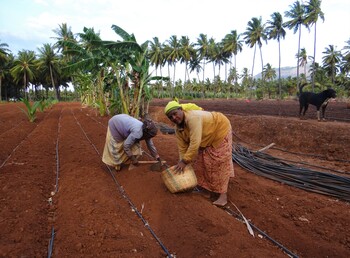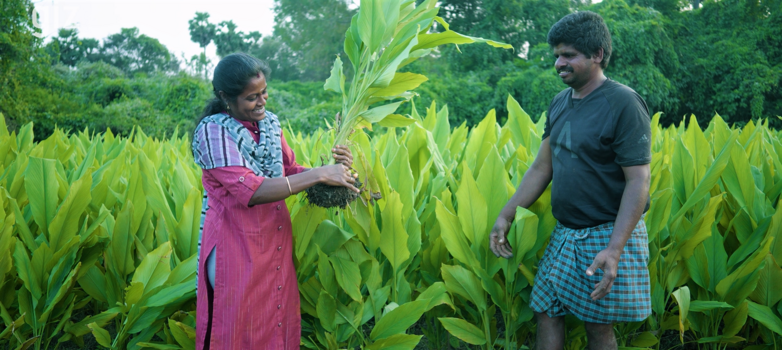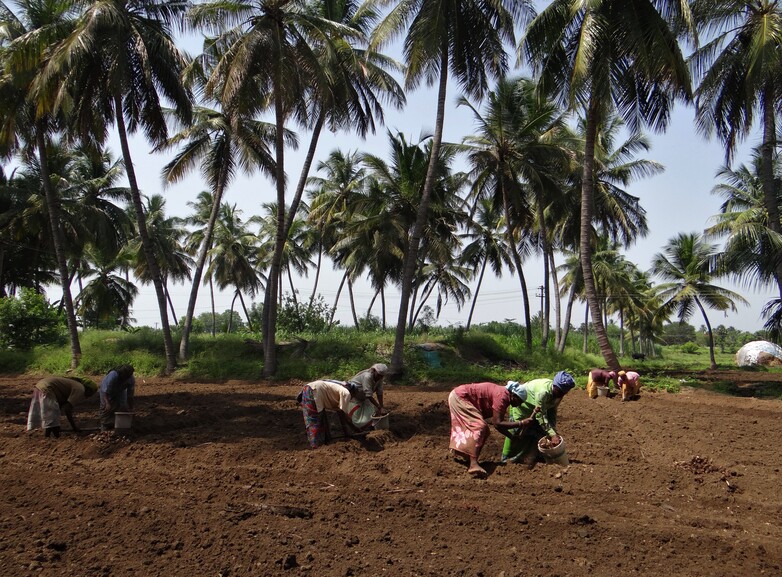Enhancing the capacities of smallholder spice farmers in sustainable farming
Enhancement of Smallholder Spice Farmers’ Capacities in Sustainable Farming
-
Commissioning Party
German Federal Ministry for Economic Cooperation and Development (BMZ)
-
Country
-
Overall term
2020 to 2025
-
Other Stakeholders
AVT McCormick Ingredients Pvt. Ltd., McCormick Switzerland GmbH
-
Products and expertise
Climate, environment, management of natural resources

Context
With its long history of spice trade, India continues to be one of the world’s largest spice producers and exporters. The farming of spices provides livelihood to millions of smallholder farmers. About 85 per cent of the spice production in India is generated by small-scale farmers, who typically farm on less than two hectares of land and seasonally rotate spices with other crops. Presently, spice farmers face the challenges of uncertain pricing and adverse climate situations. The overuse of fertilisers and inappropriate use of chemical pesticides have adversely affected the soil as well as the microflora and fauna in many regions.
Sustainable spice production will improve the economic resilience of smallholder farmers by ensuring long-term demand for good quality, sustainably produced spices at a fair price.
Objective
The sustainable production of cardamom, cumin, turmeric, dill seed and celery has been enhanced in six Indian states.

Approach
The project, a public-private partnership, aims to develop and implement a programme to build capacities of smallholder spice farmers in six Indian states.
The project goals are to be achieved by:
- improving farmers’ skills in sustainable spice farming practices and agri-business management,
- introducing a subset of farmers to organic farming practices,
- engaging more women farmers in cultivation and post-harvest management,
- building industry-wide capabilities around sustainable spice farming by providing buy-back arrangements and market access to the farming communities engaged in this.
After completing the programme, the farmers receive certification with the Farm Sustainability Assessment (FSA) under the Sustainable Agriculture Initiative (SAI) platform for sustainable spice production and subsequently get the National Programme for Organic Production (NPOP) certification for organic spice production.

Last update: July 2023





